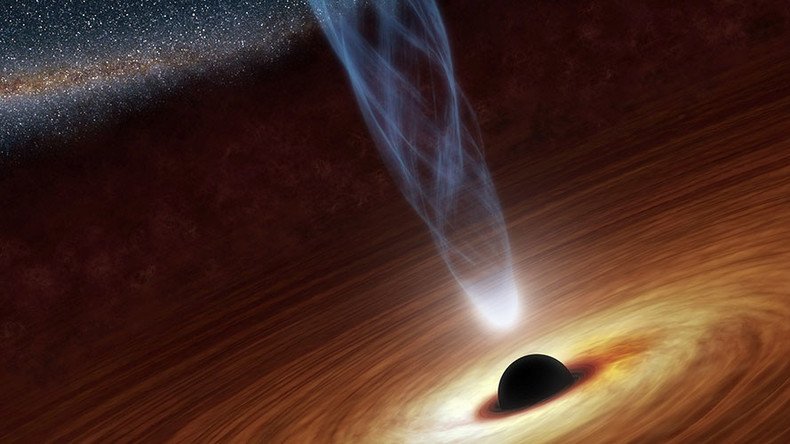'Mini' black holes could power world's electricity, but destroy civilization – Stephen Hawking

In his latest scientific theory, renowned physicist Stephen Hawking has said 'mini' black holes could power the world's electricity supply – but the same holes could destroy civilization if they weren't controlled.
Speaking during his second Reith lecture on BBC Radio 4, Hawking said that a mountain-sized black hole would give off X-rays and gamma rays at a rate of about 10 million megawatts – enough to provide power to the entire world.
He went on to explain that in the presence of a black hole, a member of a pair of virtual particles may fall into the hole, leaving the other member without a partner “with which to annihilate.”
“The forsaken particle or antiparticle may fall into the black hole after its partner, but it may also escape to infinity, where it appears to be radiation emitted by the black hole,” Hawking said.
However, the physicist made clear that harnessing a mini black hole wouldn't be easy.
“You couldn't keep it in a power station, because it would drop through the floor and end up at the center of the Earth. If we had such a black hole, about the only way to keep hold of it would be to have it in orbit around the Earth.”
He also noted that although people have searched for mini black holes, none have yet been found.
“This is a pity, because if they had I would have got a Nobel Prize,” Hawking said.
Hawking believes it may be possible to create micro black holes in the extra dimensions of space time. By “extra dimensions,” Hawking is referring to something beyond the three dimensions that humans are familiar with in their daily lives, plus the fourth dimension of time.
"According to some theories, the universe we experience is just a four dimensional surface in a ten or eleven dimensional space," Hawking explained. "We wouldn't see these extra dimensions because light wouldn't propagate through them but only through the four dimensions of our universe. Gravity, however, would affect the extra dimensions and would be much stronger than in our universe. This would make it much easier to form a little black hole in the extra dimensions.”
He went on to note that this could be possible to observe at the CERN Large Hadron Colldier (LHC) in Switzerland.
“Two beams of particles travel round this tunnel in opposite directions, and are made to collide. Some of the collisions might create micro black holes. These would radiate particles in a pattern that would be easy to recognize,” Hawking said.
“So I might get a Nobel Prize after all,” he concluded.
Hawking has never managed to win a Nobel Prize, despite his theory that black holes will eventually evaporate and disappear, which created a unification of relativity theory and quantum mechanics. It has been suggested that the inability to test the theory through observation has likely prevented him from winning the prize.













